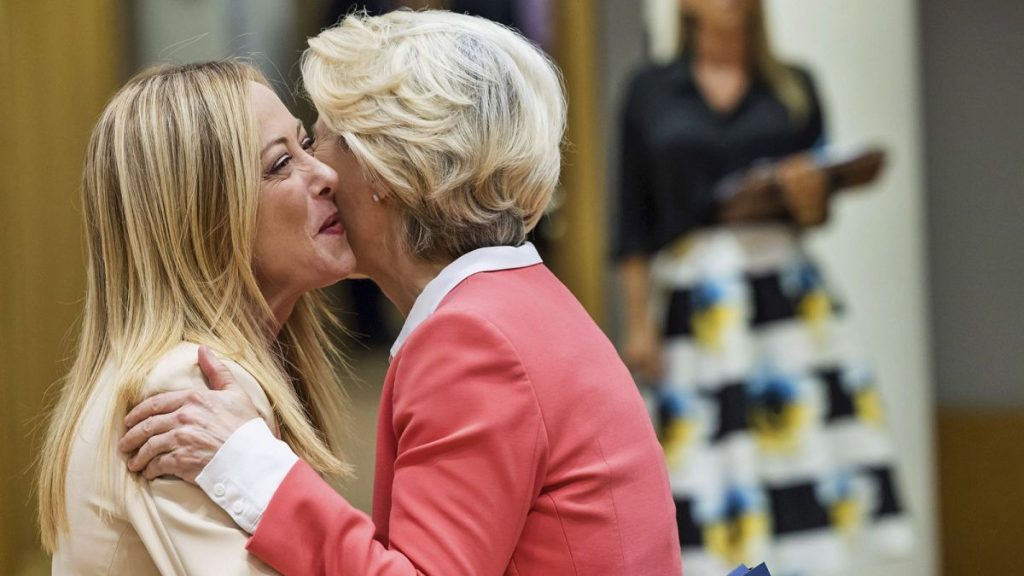Ursula von der Leyen, the current president of the European Commission, has hinted at the possibility of working with Giorgia Meloni’s hard-right party, Fratelli d’Italia, after the upcoming elections to the European Parliament. The European Conservatives and Reformists (ECR) group, which includes hard-right, Eurosceptic forces, could potentially collaborate with von der Leyen’s Centre-Right European People’s Party (EPP). During a debate with lead candidates, von der Leyen dodged questions about cooperation with ECR, prompting criticism from Green and Socialist candidates. The potential alliance with ECR raises concerns about how far right is too right for von der Leyen.
Giorgia Meloni, leader of the Fratelli d’Italia party, has emerged as an influential figure in EU politics, showcasing a more pragmatic approach while advancing her conservative agenda at home. Meloni has cultivated relationships with key European leaders and engaged in joint trips with Ursula von der Leyen, aligning on issues like migration. Their collaboration on a €7.4-billion deal to boost Egypt’s economy demonstrates a growing ideological symbiosis between the two leaders. As the ECR group is projected to grow after the elections, von der Leyen’s potential second term could be determined by her willingness to work with Meloni and her allies.
The question arises not only about von der Leyen’s potential collaboration with Meloni, but also about her openness to working with other hard-right parties within the ECR group, such as Vox in Spain and Law and Justice in Poland. The ECR’s projected growth could make it the third-largest formation in the European Parliament, with significant influence over European policies. While von der Leyen has distanced herself from the Identity and Democracy party, she has kept communication open with ECR members, potentially securing crucial votes for her re-election bid. However, aligning with ECR risks alienating socialist, green, and liberal MEPs who have diametrically opposed views.
The possibility of an alliance with ECR raises concerns for von der Leyen as it may lead to a mass rebellion from socialist, green, and liberal MEPs, making her re-election difficult. While rejecting ECR could alienate some centre-right peers who view Meloni’s coalition as a potential partnership. The careful balancing act required for von der Leyen to navigate these political waters will require both savvy political instincts and an understanding of the arithmetic of securing votes in her favor. Ultimately, her decisions on aligning with hard-right parties will impact her ability to continue leading the European Union with a centrist agenda, potentially facing repercussions from various factions within the European Parliament.
The potential collaboration with ECR poses a dilemma for von der Leyen, as it could secure crucial votes for her re-election bid but may also alienate key factions within the European Parliament. The push and pull between aligning with hard-right forces like Fratelli d’Italia and maintaining alliances with socialist, green, and liberal MEPs creates a complex political landscape for von der Leyen. The delicate balance required to navigate these tensions will test her political acumen and capacity to lead the EU with a centrist agenda while avoiding alliances that could undermine democratic values and human rights within the European Union.
In the face of discontent and backlash from socialist, green, and liberal MEPs, von der Leyen must carefully consider the political consequences of aligning with ECR and other hard-right forces. Balancing the need for crucial votes with the risk of tarnishing her reputation as a centrist leader presents a significant challenge for von der Leyen. Her decisions in the upcoming elections and the potential alliances she forms will define her second term and shape the future of the European Union, highlighting the complexities and nuances of European politics in an increasingly fragmented political landscape.


